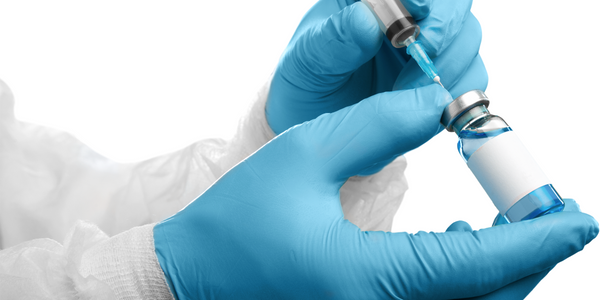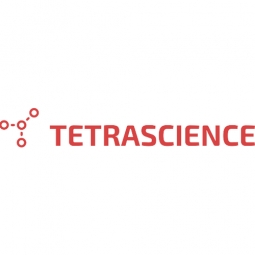Download PDF
Improving Protein Purification through Data Science: A Case Study on Alexion Pharmaceuticals
Technology Category
- Analytics & Modeling - Big Data Analytics
- Platform as a Service (PaaS) - Application Development Platforms
Applicable Industries
- Equipment & Machinery
- Pharmaceuticals
Applicable Functions
- Product Research & Development
Use Cases
- Time Sensitive Networking
Services
- Data Science Services
- System Integration
The Challenge
Alexion Pharmaceuticals, a biopharmaceutical company, was facing several challenges in its downstream process development operations. The company was struggling with data silos as instrument vendors did not integrate with one another, leading to manual data movement. The proprietary data formats of vendors required their specific tools, which hampered third-party data standardization. Additionally, informatics leads had to manually move, update, and curate files from multiple locations. Scientists were also required to enter peak information into analytical software themselves. Furthermore, existing dashboarding tools had steep learning curves and could not manage metadata. Scientists were constantly needing to test their hypotheses and derive useful insights from heterogeneous data sources.
About The Customer
Alexion Pharmaceuticals, Inc. is a biopharmaceutical company that focuses on serving patients with devastating and rare disorders through the development and commercialization of life-transforming therapeutics. The company's product focus includes research novel molecules and targets in the complement cascade and the development efforts in the core therapeutic areas of hematology, nephrology, neurology, metabolic and cardiology. Alexion tackles rare diseases using biologic therapeutics, transforming the lives of many patients affected by devastating conditions such as generalized Myasthenia Gravis (gMG) and Hypophosphatasia (HPP).
The Solution
Alexion Pharmaceuticals adopted the Tetra Data Platform (TDP) to overcome these challenges. The TDP transfers, standardizes, and harmonizes siloed data in the cloud. New data is indexed via ElasticSearch and structured into SQL tables to enable searches and queries. TetraScience’s pipelines standardize and structure data for downstream visualization, storage, or AI/ML insights. Data flows from source to the cloud to ELN and data science targets without any manual intervention. The TetraScience API can be used to funnel harmonized data into data science applications. Consuming this data in customizable data science applications like Streamlit provides scientists full control over chromatogram overlays and integration.
Operational Impact
Quantitative Benefit
Related Case Studies.

Case Study
Case Study: Pfizer
Pfizer’s high-performance computing software and systems for worldwide research and development support large-scale data analysis, research projects, clinical analytics, and modeling. Pfizer’s computing services are used across the spectrum of research and development efforts, from the deep biological understanding of disease to the design of safe, efficacious therapeutic agents.

Case Study
Smart Water Filtration Systems
Before working with Ayla Networks, Ozner was already using cloud connectivity to identify and solve water-filtration system malfunctions as well as to monitor filter cartridges for replacements.But, in June 2015, Ozner executives talked with Ayla about how the company might further improve its water systems with IoT technology. They liked what they heard from Ayla, but the executives needed to be sure that Ayla’s Agile IoT Platform provided the security and reliability Ozner required.

Case Study
IoT enabled Fleet Management with MindSphere
In view of growing competition, Gämmerler had a strong need to remain competitive via process optimization, reliability and gentle handling of printed products, even at highest press speeds. In addition, a digitalization initiative also included developing a key differentiation via data-driven services offers.

Case Study
Predictive Maintenance for Industrial Chillers
For global leaders in the industrial chiller manufacturing, reliability of the entire production process is of the utmost importance. Chillers are refrigeration systems that produce ice water to provide cooling for a process or industrial application. One of those leaders sought a way to respond to asset performance issues, even before they occur. The intelligence to guarantee maximum reliability of cooling devices is embedded (pre-alarming). A pre-alarming phase means that the cooling device still works, but symptoms may appear, telling manufacturers that a failure is likely to occur in the near future. Chillers who are not internet connected at that moment, provide little insight in this pre-alarming phase.

Case Study
Premium Appliance Producer Innovates with Internet of Everything
Sub-Zero faced the largest product launch in the company’s history:It wanted to launch 60 new products as scheduled while simultaneously opening a new “greenfield” production facility, yet still adhering to stringent quality requirements and manage issues from new supply-chain partners. A the same time, it wanted to increase staff productivity time and collaboration while reducing travel and costs.

Case Study
Integration of PLC with IoT for Bosch Rexroth
The application arises from the need to monitor and anticipate the problems of one or more machines managed by a PLC. These problems, often resulting from the accumulation over time of small discrepancies, require, when they occur, ex post technical operations maintenance.





